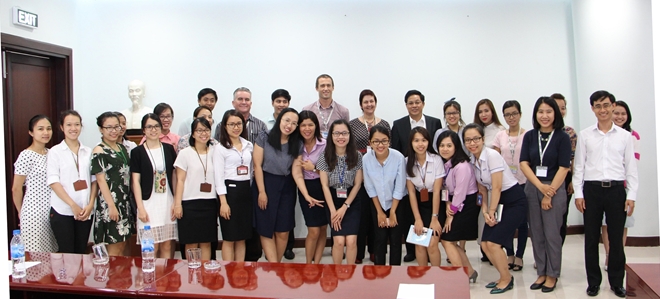English language training for Da Nang officials to host APEC events
The program, delivered by RMIT University Vietnam for 50 participants from Da Nang is being launched today, 15 May 2017.
- Hoa Binh businesses look for opportunities in Australia
- Mango producer struggles to meet Australian standards
- Australia helps Vietnam train female sports journalists
In partnership with the Da Nang People’s Committee, the Australian Government is sponsoring a training program for Da Nang City leaders and officials to enhance their English language and intercultural communication skills to contribute to a successful APEC year in Vietnam.
 |
The program, delivered by RMIT University Vietnam for 50 participants from Da Nang is being launched today, 15 May 2017. This training program has been designed to meet diverse needs of participants of different English levels and work schedules.
Mr. Nguyen Cong Tien, Deputy Director of Da Nang Department of Foreign Affairs said: "Education is considered the most active cooperative area in the relations between Da Nang and Australia. This training course will not only contribute to the preparation for the 2017 APEC Economic Leaders’ Week and Da Nang’s foreign relations, but also contribute to enhancing and deepening the cooperation between Da Nang in particular, Viet Nam in general with Australia."
“I am proud that Australia has very good relations with Da Nang, a beautiful and dynamic city. Education is a cornerstone in our bilateral relationship and a major focus of Australian investments in this city. The Australian Government is pleased to be able to respond effectively to an emerging, practical need of Da Nang city where key APEC events will take place. We aim to contribute to Vietnam’s success in hosting APEC this year” Australian Ambassador, HE Mr Craig Chittick commented.
RMIT University Vietnam English language educators will be leading the instruction for this unique course. RMIT has been providing international standard English language and communication skills training in Vietnam for more than 15 years, and has drawn on this experience to develop this tailored course.
The course will focus on professional communication and relationship building across cultures. Participants will develop their skills by engaging in communicative activities that replicate real life opportunities for intercultural exchanges that this year will bring.

